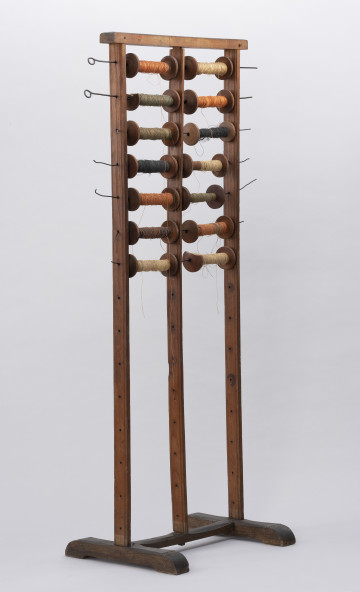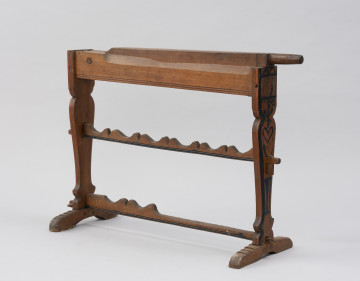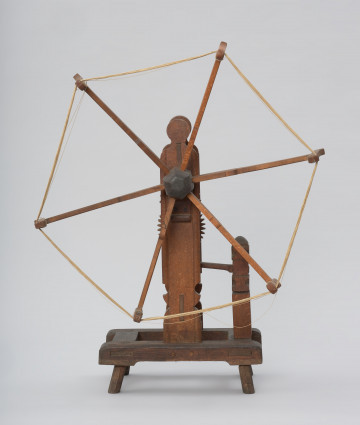
Bobbin rack
1801 — 1939
National Museum in Szczecin
Part of the collection: Material culture of West Pomerania
Flax was one of the basic raw materials for making linen, which was used to make clothes and bedding, among other things. The entire process from sowing the seeds to making the fabric was very long and laborious. After harvesting in early autumn, the flax was then dried in the open air. Then flax was subjected to the mechanical breaking of the stalks using the flax brake or break, so-called międlice or cierlice. After breaking, the remains of the straw were then scutched to separate the fibres from shives, i.e., the wooden refuse used to make sacks and ropes. The flax shives (paździerze in Polish) actually gave the month October – październik –- its name, as explained in a folk proverb: Październik, bo paździerze baba z lnu cierlicą bierze (the month is called “październik”, because it is the time when the woman would get shives, “paździerze” from flax, using a flax brake). For the scutching process, special tools were used – thin, wooden boards mounted on short handles, sometimes decorated with engraved patterns. The flax scutcher from the collection of the Department of Ethnography of Pomerania of the National Museum in Szczecin has an intricate ornament of rosettes and triangles arranged in circular bands on both sides, coloured in red and dark green. It is a common decorative motif in the folk culture of the whole of Western Pomerania. Resembling stylised flowers with six symmetrically arranged petals, inscribed in a circle, these patterns were not merely a decoration but also had a deep, symbolic meaning. In folk beliefs they were attributed with protective properties, guarding against evil forces. This flax scutcher was made in 1876.
Agnieszka Słowińska
Author / creator
Dimensions
cały obiekt: height: 43,3 cm, width: 21,1 cm
Object type
weaving equipment
Creation time / dating
Creation / finding place
Identification number
Location / status

1801 — 1939
National Museum in Szczecin

1801 — 1900
National Museum in Szczecin

1701 — 1900
National Museum in Szczecin
DISCOVER this TOPIC
Castle Museum in Łańcut
DISCOVER this PATH
Educational path